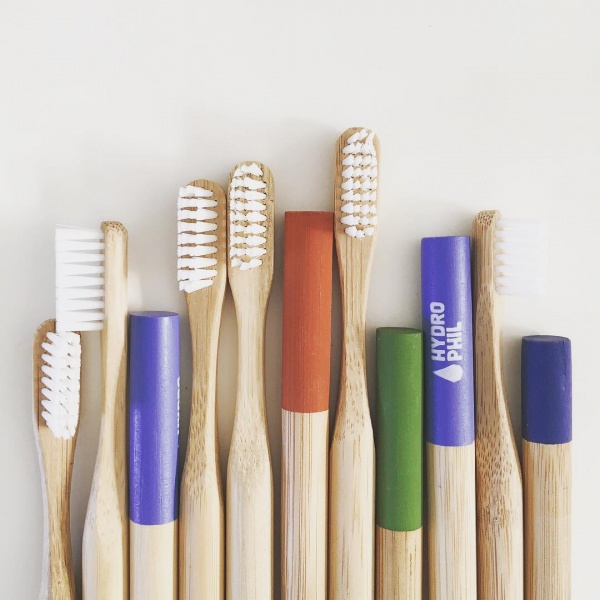
Image @thekindstoreuk / Instragram
- Home
What’s the deal with bamboo toothbrushes
Brush your pearly whites the eco-friendly way
When picturing your household waste what’s the first thing that comes to mind? Chances are it won’t be a toothbrush. But it’s estimated that on average, Australians throw out 30 million plastic toothbrushes – or to put it into perspective – 900 million tonnes – each year! A figure that’s based on Australians throwing out just two toothbrushes per year. And that doesn’t even take into consideration the packaging or nylon bristles. For such an unassuming item it creates quite a lot of waste, right?
Enter the bamboo toothbrush, made from sustainably grown bamboo, they’re designed to break-down in your home compost. Genius!
According to the founder of eco-friendly store Biome, Tracey Bailey, bamboo toothbrushes can be added to your household compost or buried in the garden to break down over time.
“Unfortunately the bristles are still made of nylon – a petrochemical plastic – which can’t be composted – so you have to either snap off the head or pull out the bristles before you compost it.’’
Biodegradable bristles do exist however Kappi bamboo toothbrush creator Emily Carlstrom says they’re either made from boar bristles which come with separate concerns around animal treatment – and aren’t vegan friendly – or castor bean oil-derived bristles which begin to biodegrade after a couple of weeks of use.
“Such a fast break-down process doesn’t present a very good value proposition for our customers, so we chose nylon for our brushes,’’ Emily explains.
She also warns not all bamboo toothbrushes are created equal. “There is so much marketing spin surrounding bamboo toothbrushes. Claims such as ‘100 per cent biodegradable’, ‘bio-plastic bristles’ and ‘charcoal impregnated nylon bristles’. Most of this spin is unfounded and is intended to green-wash the consumer.’’
Emily prefers the toothbrush ‘head snapping’ option over individual bristle removal (which, BTW, sounds like much less hassle to us).
“This way, the bristles are kept together until the head biodegrades in the future, by which point the bristles should buried and contained. It means we’re avoid introducing microplastics into our environment.”
